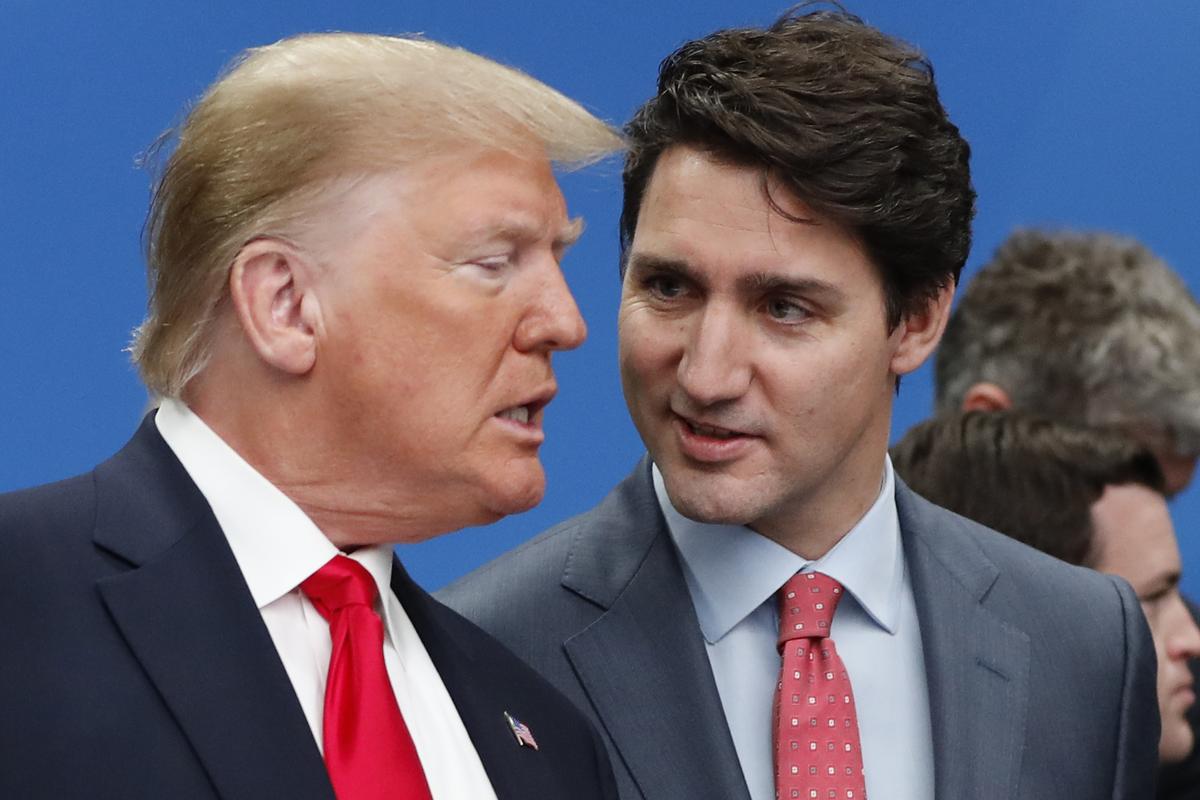Canada’s Diplomatic Push: Ministers Meet Trump’s Commerce Pick Over Tariff Concerns
Two senior Canadian Cabinet ministers met with President-elect Donald Trump’s pick for commerce secretary at Mar-a-Lago, aiming to prevent the implementation of broad tariffs as Trump prepares to take office.
Two Canadian Cabinet ministers attended a high-level meeting at Mar-a-Lago on Friday but departed without any concrete assurances that President-elect Donald Trump would reconsider his proposed tariffs on all goods from Canada, one of the United States’ largest trading partners.
Despite the lack of a definitive resolution, the Canadian officials described the discussions as “productive,” emphasizing the importance of continued dialogue. However, a Canadian official noted that the U.S. delegation appeared primarily focused on addressing the trade deficit with Canada, suggesting that this concern remains a central issue for the incoming administration. The meeting highlighted the complexities of the trade relationship and the need for ongoing negotiations to prevent potential economic disruptions.
Finance Minister Dominic LeBlanc and Foreign Minister Mélanie Joly recently held a high-profile meeting at Mar-a-Lago with Howard Lutnick, President-elect Donald Trump’s nominee for commerce secretary, and North Dakota Governor Doug Burgum, Trump’s pick to lead the Interior Department.

The discussions took place amidst escalating tensions over Trump’s threat to impose a 25% tariff on all Canadian products unless Canada takes stronger action to address issues such as the flow of migrants and fentanyl into the United States. This demand has drawn criticism, given that far fewer migrants and fentanyl shipments cross into the U.S. from Canada compared to Mexico, which Trump has also targeted with similar threats.
According to Jean-Sébastien Comeau, a spokesperson for Minister LeBlanc, the meeting was described as “positive and productive” and followed up on a recent dinner between Prime Minister Justin Trudeau and President Trump. During the discussions, the Canadian ministers outlined Canada’s billion-dollar plan to enhance border security, emphasizing its role in addressing mutual concerns.
They also reaffirmed Canada’s commitment to collaborating with the U.S. to strengthen border measures and combat the devastating effects of fentanyl in both countries. The meeting underscored the importance of bilateral cooperation in tackling these pressing challenges while attempting to preserve the robust trade relationship between the two nations.
During the recent high-level discussions at Mar-a-Lago, Canadian ministers Dominic LeBlanc and Mélanie Joly conveyed detailed proposals to President-elect Donald Trump’s nominees Howard Lutnick, the prospective commerce secretary, and Doug Burgum, selected to lead the Interior Department. The ministers presented Canada’s billion-dollar initiatives to strengthen border security and address the issue of fentanyl trafficking, which has been a key concern for the U.S. administration. According to Jean-Sébastien Comeau, LeBlanc’s spokesperson, Lutnick and Burgum agreed to relay the information to Trump.
However, a senior Canadian official noted privately that the Americans remain preoccupied with the U.S. trade deficit with Canada and have expressed a desire to see it reduced. President-elect Trump has frequently highlighted the trade deficit, erroneously referring to it as a “subsidy.” Kirsten Hillman, Canada’s ambassador to Washington, has clarified that the U.S. recorded a $75 billion trade deficit with Canada last year, largely driven by energy exports. She pointed out that a significant portion of what Canada exports to the U.S. includes crude oil, with Alberta alone supplying 4.3 million barrels daily—accounting for 60% of U.S. crude imports and 85% of its electricity imports.
Despite Canada’s efforts to emphasize the mutual benefits of trade, the Trump transition team has not responded to these points or other inquiries. Minister Joly is expected to continue discussions, including a dinner with U.S. Senator Lindsey Graham, to further address these concerns in the coming days.
Meanwhile, President-elect Trump has escalated tensions by mocking Canadian Prime Minister Justin Trudeau on social media, referring to him as the “Governor of the 51st state.” Trudeau has refrained from engaging directly but responded subtly by sharing a 2010 video featuring NBC journalist Tom Brokaw explaining Canada’s close relationship with the U.S. The video highlights the deep historical ties between the two nations, emphasizing their shared sacrifices in World War II and Afghanistan, as well as their peaceful and productive economic partnership.
Trudeau has also underscored to Trump the significant harm that tariffs would inflict on both economies. Canada is the largest export destination for 36 U.S. states, with $3.6 billion CAD ($2.7 billion USD) worth of goods and services crossing the border daily.
The discussions have also touched on border security and drug enforcement. Data shows stark differences between the U.S.’s two land borders. Last fiscal year, U.S. customs agents intercepted only 43 pounds of fentanyl at the Canadian border compared to 21,100 pounds at the Mexican border. The majority of fentanyl entering the U.S. is produced by Mexican cartels using precursors imported from Asia. Similarly, immigration data highlights that the U.S.-Mexico border saw 1.53 million migrant encounters between October 2023 and September 2024, compared to just 23,721 at the Canadian border.
As both sides prepare for further negotiations, the Canadian government remains focused on presenting evidence of the deep economic interdependence between the two nations while addressing U.S. concerns about trade and security.


Comments are closed, but trackbacks and pingbacks are open.